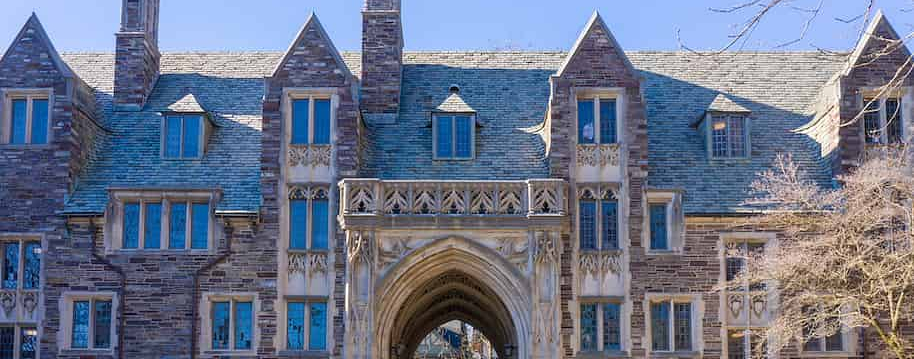IvyWise On-Demand: It’s Not Too Late to Plan for Summer 2025
Summer is just around the corner, but it isn’t too late to plan for a productive break! From conducting an independent project to attending a summer program at a university campus, there are several ways for you to fight summer brain drain and stay on track with your college admissions prep.
Watch now
By an IvyWise WiseStart™ Counselor
It’s important for middle and high school students to use the summer productively so they can build on what they learn in the classroom and further explore their interests. Academic summer programs are a great opportunity to delve into a subject more deeply. Students who want to attend a summer program at an Ivy League school can take courses that align with their interests while meeting other highly motivated and talented students.
What Should High Schoolers Do over the Summer to Impress Colleges?
High schoolers can engage in various activities over the summer to impress colleges, such as volunteer work, independent projects, online courses, internships or work experience, outside reading, and more. Pre-college summer programs are another great activity for college admissions. These programs give students a taste of the college experience and show admissions committees that they can complete rigorous undergraduate-level courses. These programs are not essential for college admissions; however, they typically provide students with a rewarding and memorable experience that builds confidence, expands their network of peers and mentors, and adds to their academic achievements.
Are Ivy League Summer Programs Worth It?
Colleges want to see students exploring personal and academic activities related to their interests. In fact, some colleges even ask students to write in college applications about how they spent their summers. Summer programs can go a long way in expanding students’ academic skills — they will improve your child’s study skills and allow them to more deeply explore subjects that are important to them. This will also give them more to expand on when writing essays and speaking in school interviews.
Ivy League summer programs are like any other summer program in that they can enrich your student academically and personally, help them prepare for college, connect them with peers who share their interests, and demonstrate their commitment to academic excellence. Your student doesn’t have to be interested in attending an Ivy League school to get something out of the program — they are open to all qualifying college-bound students interested in attending any college. Many other summer programs and opportunities for students are available outside of Ivy League schools, so consider exploring a range of options to find the program that best aligns with your child’s interests and goals.
11 Ivy League Summer Programs for Middle and High School Students
There are several things to consider when researching academic summer programs:
- What your student might be interested in learning and doing at the summer program.
- Whether you would prefer a day, online, or residential program.
- How long the program will be.
- The cost of the program and availability of financial aid, if needed.
See below for a sampling of academic summer camps, online sessions, and residential programs available to middle and high school students at Ivy League institutions, a few of which are low cost or free.
Grades: 7-9
Philadelphia-area middle schoolers with an interest in STEM can apply for this week-long day camp program offered by Penn Engineering. The GEMS program focuses on showing students how engineering impacts everyday life, encourages them to pursue engineering, and connects them with mentors and role models in the field.
Students receive hands-on experience in bioengineering, graphics and computing, materials science, and nanotechnology. Examples of academic activities include learning basic computer programming skills, designing and building a structure or vehicle, exploring robotics technology by playing with a robot, and examining how cells travel through the body.
Grades: 6-9
This six-week program is open to rising sixth to ninth graders in New Haven, Connecticut — a teacher recommendation is required. Students take morning classes with their grade-level peers in the humanities, social sciences, and natural sciences, which are designed and taught by Yale undergraduates. In the afternoon, students participate in mixed grade-level activities such as chorus, American Sign Language, drawing, publishing, starting a business, and more.
Students in the program also participate in free time activities like sports, board games, and arts and crafts. Friday afternoons are dedicated to field trips on campus or within the local area. The program also includes guest speakers, performers, and theme days.
Grades: 7-12
This free program is open to middle and high school students with an interest in pursuing medicine or related fields. The goal of the program is to help more historically underrepresented and low-income students prepare for college and STEM fields. S-PREP is offered Monday through Friday each July or on Saturdays during the academic year. Students in the program take a variety of math and science courses.
Also, students in the summer program receive test prep for the PSAT, college prep and career development workshops, field trips, and college tours. High school participants are eligible to apply for summer research programs at the Herbert Irving Comprehensive Cancer Center and the Zuckerman Mind Brain Behavior Institute.
Grades: 11-12
Rising juniors and seniors can apply for this intensive two-week program. Students live on the Harvard campus during the program, participating in rigorous coursework and co-curricular activities. The curriculum includes almost 30 courses that cover topics such as business and leadership; speech, writing and literature; STEAM; psychology, medicine, and public health; race, gender, and ethics; and law, politics, philosophy, and history.
Participants in the program will not earn college credit, but they will be able experience college academics and campus life. Completion of the program demonstrates that the student is prepared for the rigors of college-level coursework. Harvard’s Pre-College Program includes workshops on college prep, such as writing the admissions essay, understanding financial aid, and more.
Eligibility: High school students who are 16 or older by June 15; high school graduates who have not yet turned 18 by June 15
Talented students with an interest in immersing themselves in research over the summer may benefit from this full-time program, which allows them to work as research interns with Princeton faculty and staff. Research opportunities typically last 5-6 weeks and are focused on engineering and natural sciences. Participants must submit a two-page research summary at the end of the program.
Applicants must choose up to two research opportunities of interest. Once admitted to the program, students must submit a nomination form from a high school teacher. While these internships are unpaid, students receive valuable research experience and mentorship from Princeton faculty.
Eligibility: Students completing grades 9-12
The Summer@Brown program offers more than 300 college-level courses and a residential campus experience, attracting students from across the U.S. and around the world. The courses span the curriculum, from STEM to liberal arts. Students are challenged academically without the stress of grades or course credit.
Outside of class, students participate in various activities, events, and workshops that connect them with peers taking other courses. In addition to engaging in intense study, students learn responsibility and how to live independently, in addition to being exposed to a broad range of perspectives and experiences.
Grades: 11-12
Cornell’s pre-college program allows rising juniors and seniors the opportunity to complete undergraduate coursework for college credit. A residential program has been offered, though Cornell is currently only offering online study. Students can choose from more than 100 courses in architecture, business, hotel management, the humanities, health, international relations, science and technology, veterinary medicine, and more.
The online program is available year-round, allowing students to earn up to 12 credits at Cornell, work with distinguished faculty, and connect with their peers. Summer courses are offered in three- and six-week sessions.
Grades: 9-12 (Age 16 and older for NYC Residential Program)
The Columbia Experience offers several academic enrichment programs for high school students. Summer programs include NYC Residential Summer, NYC Commuter Summer, and Online Summer. In addition to academics, students in the commuter and residential programs receive access to campus resources and can participate in student life activities. The residential program also includes tours of New York City neighborhoods, Broadway shows, and more.
Online students are expected to engage in discussion and work collaboratively with peers and instructors. The program also includes college prep and career skills workshops and seminars.
Eligibility: Current 10th-11th graders
Penn’s pre-college programs offer high schoolers the opportunity to earn college credit through a residential or fully online option. Students in the residential program spend five weeks on campus and participate in evening and weekend activities in addition to taking classes alongside Penn undergrads.
The online program also lasts five weeks. Students in both residential and online programs can enroll in a variety of courses focusing on science, history, literature, economics, math, international relations, linguistics, psychology, and more.
Grades: 10-12
This residential summer program allows high school students to attend cross-disciplinary, non-credit courses taught by Dartmouth faculty and staff and participate in recreational and social activities in the surrounding area. Additionally, “Sophomore Summer” takes place, which keeps the entire class of rising Dartmouth juniors on campus for immersive study, research, and social activities. This gives pre-college students the opportunity to get a more authentic college experience.
Dartmouth offers the Summer Scholars program in three two-week sessions each summer. The curriculum includes courses such as data science, creative writing, business foundations, design thinking, and more — students can only enroll in one course per session. During the program, participants live in residence halls designated specifically for pre-college students and eat in dining halls. Out-of-classroom activities take place in and around Hanover and may include workshops, social programs, outdoor recreation, and more.
Grades: Rising juniors to first-year college students (depending on program)
Yale has multiple robust summer programs available for pre-college students. Rising seniors and recent graduates can take Yale courses for college credit (both in-person and virtually) or participate in the five-week Conservatory for Actors program. Rising juniors and seniors can participate in the Yale Young Writers’ Workshop — a week-long virtual program taught by leading authors and poets. Students taking in-person classes are expected to stay in residence halls on campus unless they live within commuting distance. In both in-person and online classes, program participants will be studying alongside current Yale undergraduates.
The Yale Summer Session also includes the Yale University Preparation for International High School Students — a five-week program that prepares international students for undergraduate study in the U.S. Participants in this program have the opportunity to improve their English skills, gain an understanding of American college culture, and visit several campuses in the northeastern U.S.
Remember to check the requirements for each program, be mindful of their deadlines, and, if needed, inquire about financial aid opportunities. Ultimately, summer programs can be windows into exciting new opportunities and experiences, both academic and extracurricular.
If summer is fast approaching and you still don’t have any plans, IvyWise can help you plan the best school break possible for your child. Whether you need help identifying the best activities or researching program options, our experts are here for you. Contact us today to see how we can get your student’s summer back on track.




